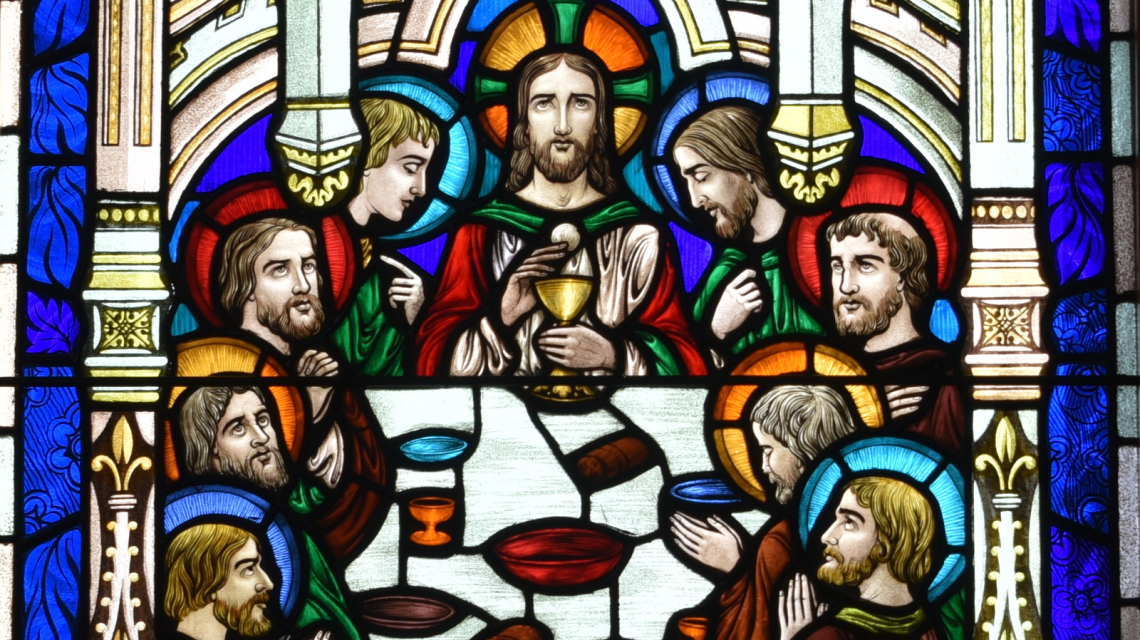The Mass: Was ever a command so obeyed?

Beginning last June, the bishops of the United States committed themselves to a three-year effort of eucharistic revival throughout our country. This effort is partly in response to the enforced absence from the celebration of the Eucharist caused by COVID-19 prevention measures in many states and jurisdictions. It is also in response to declining rates of Mass attendance among Catholics over the past several decades. Many factors in the culture and society have contributed to create a loss of eucharistic amazement among those who identify as Catholics. The goal of many efforts at the national, diocesan, and parish levels over the next three years will be to revive and reinvigorate this sense of appreciation for the gift of the Eucharist among all baptized Catholics. To that end, Harvest magazine will include a series of articles on the various elements of Mass. When participants at Mass understand and appreciate their role better, they are more likely to invite others to join them on Sundays. That is the hope for this series.
I suppose it is best to start at the beginning. Why do Catholics have Mass? Other Christians worship differently from Catholics. Why is the Mass so important to Catholics? At its simplest, the reason why Catholics celebrate Mass is because Jesus told us to do so. Disciples of Jesus are not simply people who admire Jesus for His teaching on how to live and how to treat others. Disciples of Jesus acknowledge Him as master, as the authority in their own lives. Moreover, disciples of Jesus acknowledge Him as God. Catholics are meant to live as disciples of Jesus in what they say and do. We can never forget that on the night before Jesus died for us and for our salvation, He told the disciples of His time, “Do this in memory of me.” That command was not meant simply for those in the upper room with Him. Rather, that command was meant for disciples of every time and place. That command was meant for us.
Like the disciples in the upper room, we are meant to gather with Jesus when He breaks the bread for us and when He pours out the wine for us. As His words indicate, that bread becomes His body offered for us, and that wine becomes His blood sacrificed for us. Jesus does not lie. And so, if the disciples then could take Him at His word, so can we take Jesus at His word in our time. After all, Jesus is not dead. He is alive! That is what the resurrection means. And since He is alive, He continues to do now for us what He once did for the disciples in Galilee. His saving actions have not ended, and they have not changed. When we hear the words, “Do this in memory of me,” we are charged to carry out the same actions and words that Jesus carried out long ago at the last supper He shared with His disciples before His death on the cross.
This command, “Do this,” is probably the one command that has been obeyed the most in all of human history. A 20th century English theologian, Gregory Dix (1901-1952), put it this way in a famous passage from his book The Shape of the Liturgy (1945):
Was ever a command so obeyed? For century after century, spreading slowly to every continent and country and among every race on earth, this action has been done in every conceivable human circumstance, for every conceivable human need from infancy and before it to extreme old age and after it, from the pinnacle of earthly greatness to the refuge of fugitives in the caves and dens of the earth. Men [and women] have found no better thing than this to do for kings at their crowning and for criminals going to the scaffold; for armies in triumph or for a bride and bridegroom in a little country church; for the proclamation of a dogma or for a good crop of wheat ... for the famine of whole provinces or for the soul of a dead lover; in thankfulness because my father did not die of pneumonia ... for the repentance of Margaret; for the settlement of a strike; for a son for a barren woman; for Captain so-and-so wounded and prisoner of war ... tremulously, by an old monk on the fiftieth anniversary of his vows, furtively, by an exiled bishop who had hewn timber all day in a prison camp near Murmansk; gorgeously, for the canonization of St. Joan of Arc — one could fill many pages with the reasons why men [and women] have done this, and not tell a hundredth part of them. And best of all, week by week and month by month, on a hundred thousand successive Sundays, faithfully, unfailingly, across all the parishes of Christendom, the pastors have done this just to make the plebs sancta Dei — the holy common people of God.
Over the next three years, may all the baptized grow more and more committed to faithfully living out Jesus’ command to us in our day to do all this in memory of Him.
Msgr. Marc B. Caron is the moderator of the curia and vicar general
for the Diocese of Portland.










